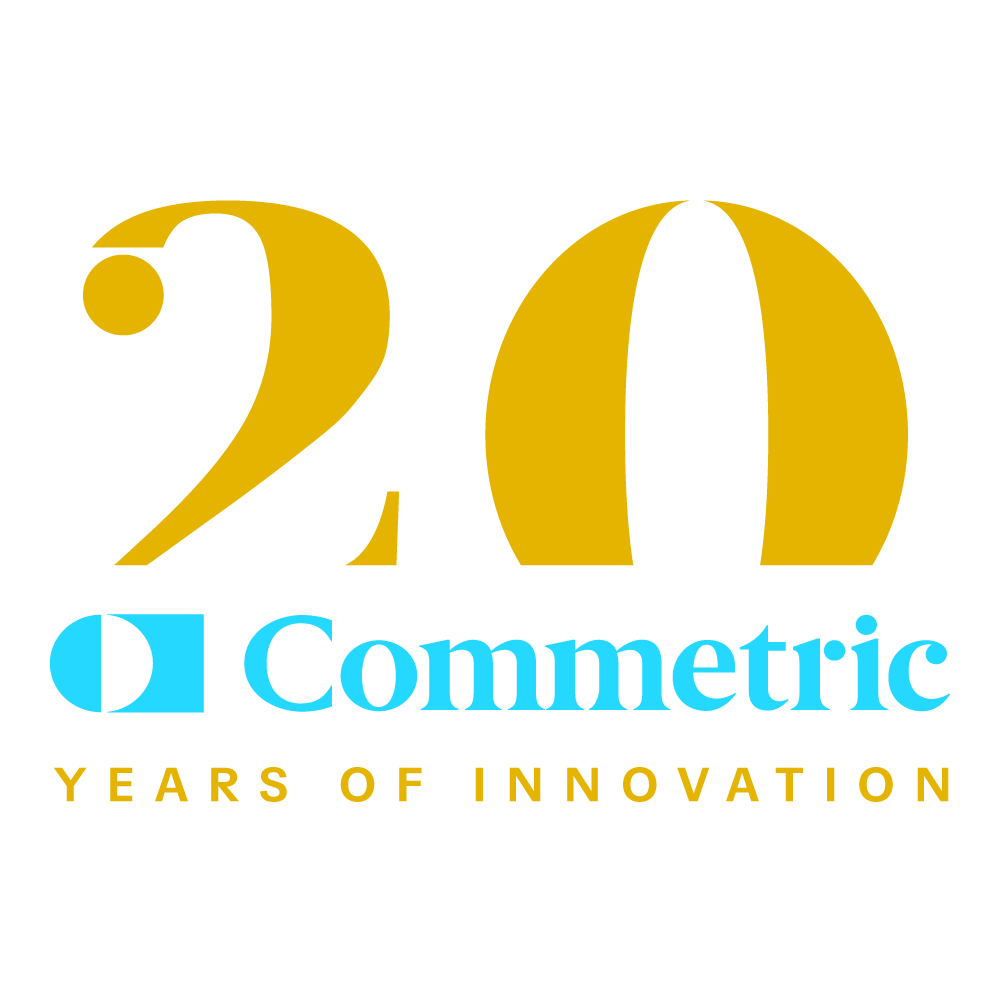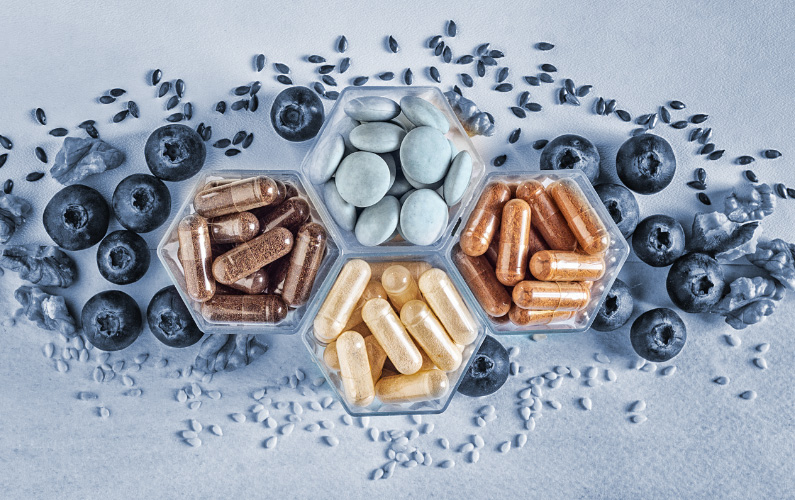- Our media analysis found that the debate around dietary supplements continues to centre on their efficacy, with companies such as Nestlé, Unilever, GNC, and Herbalife adopting proactive PR strategies to address this challenge and communicate the scientific basis of their products.
- We also found that retailers Vitamin Shoppe and Ritual have emerged as leaders in the media discourse, leveraging innovative PR strategies, while Pfizer’s funding of a multivitamin study provided a counter-narrative to ongoing skepticism.
- While the COVID-19 pandemic saw a boom and subsequent decline in the vitamin industry, we found that vitamin D remained popular due to its perceived links with immunity and its prevalence in media and social media discussions during lockdowns and stay-at-home orders.
View a one-page infographic summary of the analysis
During Covid, dietary supplements became a hot topic as individuals sought ways to boost their immunity and protect their health, leading to a boom in the supplement industry.
How has this affected the media discussion around supplements and what’s the state of play now that the pandemic is over? To find out, we analysed 2,986 English-language articles published in the last year. Here’s what we found:
1. Efficacy remains the main challenge for brands
The main topic in the media debate around dietary supplements hasn’t changed much since we last analysed it – media outlets continued to scrutinise their Efficacy:
Journalists noted that, despite the appeal of supplements as a way to improve health, not all have been shown to deliver the benefits they claim. For example, supplements such as vitamin E and beta-carotene, once thought to have potential protective effects against heart disease and cancer, have seen their efficacy questioned in numerous articles.
Moreover, many media outlets have focused on the discrepancy between the perceived benefits of taking supplements and the actual scientifically-backed benefits, highlighting how the power of the placebo effect could lead consumers to attribute positive health outcomes to supplements when other factors may be at play.
However, one thing has changed: since Covid brought healthy lifestyles to the fore, many companies in the dietary supplement industry have started being proactive in using PR and communications strategies to address the challenges presented by the ongoing debates about supplement efficacy.
For instance, Nestlé, which recently expanded its vitamin offerings, started to communicate the scientific basis of its products, providing detailed information about research studies and clinical trials. Unilever, with its numerous wellness brands, uses a similar strategy but also incorporates customer testimonials and influencer partnerships to highlight the potential benefits of its products.
GNC, a global health and nutrition company, has been leveraging educational content, offering advice about what supplements might be beneficial for different goals, like fitness or overall wellness. Meanwhile, Herbalife employed a team of scientists and health experts who regularly publish blogs and participate in interviews discussing the role of dietary supplements in overall health strategies. It also started sponsoring sports teams and athletes, associating their brand with physical wellness and performance.
2. Retailers superseded healthcare brands in terms of media impact
Unlike in our previous analysis, where Pfizer and Herbalife dominated the discussion, retailers Vitamin Shoppe and Ritual now emerged on top in terms of media impact in the media discourse surrounding dietary supplements, due largely to their distinct yet effective PR and promotional strategies.
We determine an organisation’s media impact in the context of a topic by looking at its media influence score calculated in terms of coverage by high-profile media outlets, topic relevancy score measuring its contextual relevance, and media visibility as measured by the number of mentions.
Journalists frequently cited these two companies as examples of adaptability and innovation in the dynamic retail landscape of the supplement industry.
For example, Vitamin Shoppe gained positive media attention for adopting a forward-thinking approach by aligning its merchandise offerings with the latest trends in the supplement industry. The company expanded its assortment, catering not only to gym-goers but also to cyclists and marathon runners, while its strategic use of social media to monitor trends and discover emerging direct-to-consumer brands were mentioned in many reports as demonstrating a commitment to staying relevant and fresh in a competitive market.
Vitamin Shoppe CEO Sharon Leite emerged as one of the most influential spokespeople in the discussion, amid scientists reporting on new research findings and CEOs of much larger organisations like Kohl’s and Blackmores.
Sharon Leite was widely quoted as saying that, during the pandemic, consumers were focused on supporting immune health, while now there’s a market focused on building an active lifestyle.
Ritual, on the other hand, has carved out a niche for itself with its steadfast commitment to transparency and sustainability. Initially a direct-to-consumer brand, Ritual made a successful transition to retail shelves, including Target, by focusing on traceability and quality.
The company has prioritised providing detailed information about its product sourcing and packaging sustainability to build consumer trust online before transitioning to retail – a move that was perceived as representing a savvy understanding of the current market, where consumers increasingly value companies that are open about their operations.
3. Pfizer challenged prevailing narratives
Interestingly, pharmaceutical giants specialising in dietary supplements like GSK, Bayer, Sanofi, and Merck were notably absent In the media discussion.
The only exception was Pfizer, which received substantial media attention for funding a study on multivitamins in conjunction with Mars Edge, a unit of the food company Mars. The study, which suggested that daily multivitamins could enhance memory and slow cognitive decline, resonated with the media due to the controversial status of multivitamins. While the benefits of multivitamins are disputed, with some experts questioning their value, this study provided a new perspective that challenged prevailing narratives, making it a compelling story for media outlets.
Pfizer‘s funding of a study on the benefits of multivitamins was a well-crafted strategic PR move, considering the company is the producer of Centrum, one of the world’s most popular multivitamin brands. Amid ongoing controversies regarding the efficacy of multivitamins, this study offered a strong counter-narrative to scepticism and legitimised the potential health benefits of multivitamins, which could boost consumer confidence in products like Centrum.
From a PR perspective, Pfizer‘s funding of the study demonstrates the company’s commitment to evidence-based practice, potentially enhancing its reputation as a reliable and trustworthy entity in the pharmaceutical industry. Moreover, by contributing to the scientific discourse on multivitamins, Pfizer shows that it is at the forefront of research in this field, reinforcing its position as a market leader. This is a smart example of how scientific research can be used effectively to support a company’s marketing and communication efforts.
4. The vitamin boom failed to outlast Covid…
In the wake of the COVID-19 pandemic, media outlets focused on the boom and subsequent slump in the vitamins and supplements industry, highlighting how even giants like Nestlé and Unilever, despite their significant investments, faced challenges.
Journalists noted that these companies, traditionally known for products like ice cream, soap, and stock cubes, sought growth in vitamins and supplements as consumers tried to bolster their defences against the virus. For example, they spent billions on acquisitions of vitamin brands like Solgar and Puritan’s Pride, in attempts to outpace competitors like Reckitt Benckiser and Procter & Gamble.
However, as the pandemic eased and a cost-of-living crisis unfolded, media reports have drawn attention to the decline in vitamin sales. Media outlets have emphasised how the transition from a period of heightened health consciousness back to normalcy led to a deceleration in sales. This shift was notably highlighted in Nestlé‘s report of flat supplement sales in the first nine months of 2022, an unexpected contrast to their earlier optimism.
Simultaneously, media outlets spotlighted the shift in consumer habits due to the cost-of-living crisis, highlighting the rise in demand for store brands and the challenges this poses to profitability for these conglomerates. They also discussed the inherent risk in creating new remedies given the limited science demonstrating benefits, and concerns around market dependency on fads.
5. …but vitamin D remained popular due to the pandemic
Vitamin D was the most often discussed dietary supplement in our media sample:
The significant focus on vitamin D in media discussions can largely be attributed to its perceived connection with the pandemic. Early observations by frontline physicians suggested a correlation between lower levels of vitamin D and increased mortality risk from COVID-19.
Vitamin D’s role in immunity continued to garner widespread attention well after the pandemic, with many articles focusing on how it aids the body’s absorption of calcium and benefits the nervous system.
However, there was also a deluge of speculation on the internet, with many individuals posting on social media that supplemental doses of vitamin D could help prevent the coronavirus, regardless of existing vitamin D levels. This narrative, whether validated by scientific research or speculative, has played a significant role in making vitamin D the most discussed dietary supplement in the media and on Twitter, evidenced by the fact that it was the most often mentioned specific supplement, as we found out analysing top keywords in the Twitter debate in the last 12 months:
It was not just the health benefits that caused the vitamin D discussion to proliferate. With lockdowns and stay-at-home orders implemented around the world, people’s time spent outdoors – and hence their exposure to sunlight – was severely curtailed. This amplified concerns about potential vitamin D deficiencies and spurred additional interest in the nutrient.

